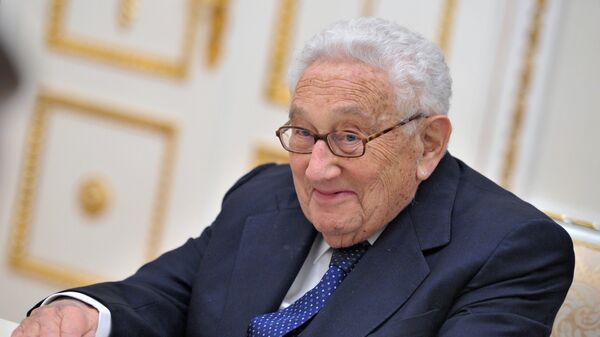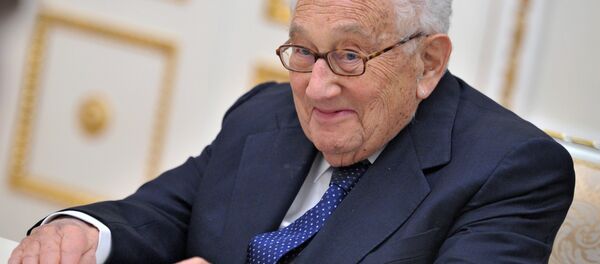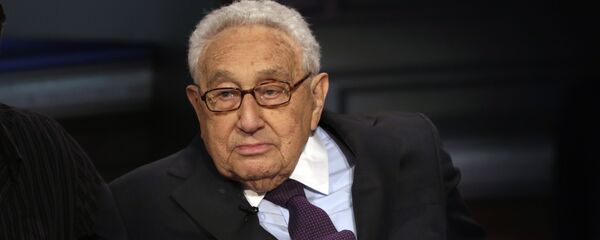"The possibility that Kissinger can win Trump over — especially to the idea of a US-Russia-China concordant that would maintain international order — is worrisome," Waters stated. on Wednesday.
However, since leaving office as secretary of state almost 40 years ago in January 1977, Kissinger has continuously pushed for closer trade relations with China, which Trump claims to oppose, Waters recalled.
"Kissinger's trip to China earlier this month and meeting with President Xi [Jinping] suggests that Trump is using a carrot and a stick as he does in so many situations, domestic and foreign," Waters said.
Trump has put China on notice since winning the US presidential election on November 8 by suggesting he might end the 44-year-old "one China" policy negotiated by Kissinger and President Richard Nixon in 1972 to refuse to give full diplomatic recognition to Taiwan.
However, Trump also appointed Iowa Governor Terry Branstad, a longstanding advocate of good US-China relations, as his ambassador to Beijing.
Waters said he believed Kissinger had been a strong advocate for Trump’s selection of Exxon Mobil President and CEO Rex Tillerson as the new US secretary of state. Tillerson has close personal relations with Russian President Vladimir Putin and has negotiated major energy deals with Moscow.
Kissinger strongly believes in establishing world order and working in harmony with other major global powers, Waters recalled.
"Kissinger's influence would mean first of all, stronger relations with Russia to work together to crush ISIS [Islamic State] — perhaps Trump's top foreign policy goal and President [Barack] Obama's greatest foreign and defense policy failure," he also stated.
Kissinger’ work for Presidents Nixon and Gerald Ford showed remarkable skills in bringing people together, a skill he might use for trump in his dealings with presidents Putin and Xi, Waters suggested.
King’s College London War Studies Professor John Bew told Sputnik that some of Trump’s proposed policies seemed to contradict Kissinger’s precedents.
"Some have said that Trump may follow a Kissingerian foreign policy but it's hard to put a name on it at the moment," Bew said.
The bilateralism and emphasis on deal-making suggest an element of Kissinger, but fronting up to China rather than seeking co-evolution is obviously very different, Bew concluded.



